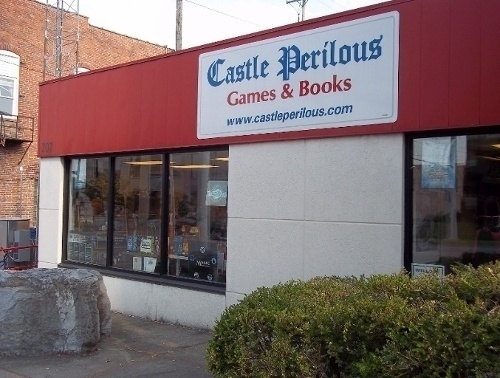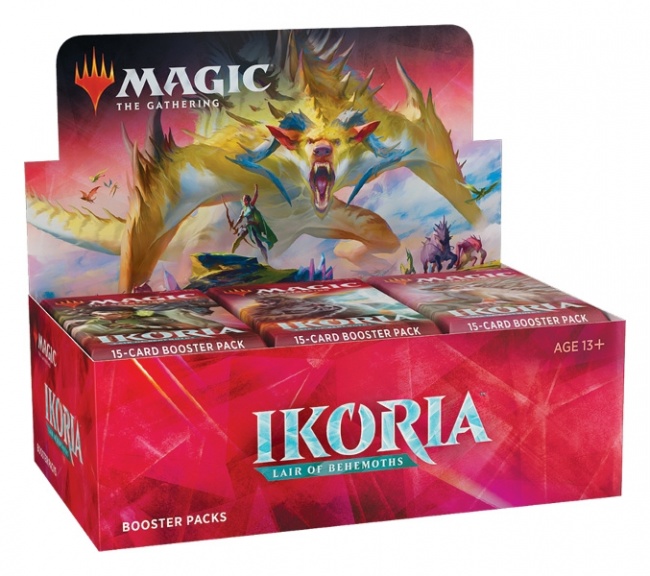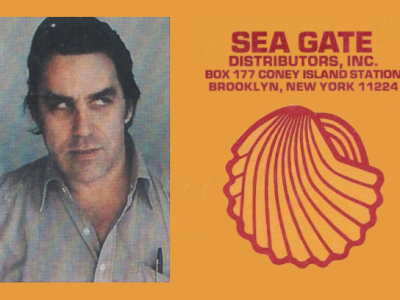Rolling for Initiative is a weekly column by Scott Thorne, PhD, owner of Castle Perilous Games & Books in Carbondale, Illinois and instructor in marketing at Southeast Missouri State University. This week, Thorne passes on a suggestion for Wizards of the Coast on handling prerelease weekend for Magic: The Gathering, shares news on weekend sales, and offers thoughts on private equity and retailer bankruptcies.
One more email received on my question a couple of weeks ago regarding what is going to happen with in-store Organized Play and the future of the OP game store model, this one from Eric Garneau, head of Games and Retail at the Chicago Board Game Café. "I would really love Wizards of the Coast to open up Arena card pools for Ikoria over prerelease weekend, so stores could run a social distancing-era tournament with people building decks out of cards they pulled in physical prerelease packs. In my head, on prerelease Friday I could drive around Chicago like some kind of Magic: The Gathering Santa Claus, bringing people the physical product they preordered, and then running a remote event using those same cards that night. It feels like the functionality should already exist in Arena; it's just if WotC would be cool with it. I know this idea has been expressed on the WPN Facebook group and they said they would look into it.
Meanwhile at the FLGS, most stores reported doing very good sales with Magic: The Gathering – Ikoria Lair of the Behemoths this past weekend, with a number saying their sales hit a typical pre-COVID-19 sales weekend, and a number of stores that had recently come out from under quarantine seeing what they said were sales comparable to Black Friday, even with no in-store play (I also did hear of a few stores running in-store tournaments but most said they canceled everything). A major reason given was players having played with the digital cards on Arena now wanted to get copies of the physical cards in their hands. How were your release weekend sales? Let me know at castleperilousgames@gmail.com.
And then, by my count, at least three major retailers have declared bankruptcy since most states shut down for quarantine last March: J. Crew, Neiman Marcus, and just last Friday, J. C. Penney. However, it would appear that the primary reason for the bankruptcy declaration was not the closure, although the drop-off in sales there did not help matters any. Rather it was the same thing that pushed Toys 'R' Us into filing for bankruptcy back in 2018 (see "Toys ‘R’ Us Closing All US and UK Stores"): a reliance on the private equity method of funding to pull a company through.
Although publicly traded, shareholders with enough stock in the company can control it, and with a publicly traded corporation, someone can control it with a surprisingly small amount of stock ownership (the controllers of JC Penny did so while only owning about 8% of the stock), can direct the actions of the corporation, since the rest of ownership is too diffused for the other stockholders to exert much influence on the corporation’s actions. In case of TRU, J. Crew and Neiman Marcus, private equity firms borrowed against the value of the company to buy all of the outstanding stock in the company, taking them from publicly traded corporations to privately held ones that now held all of the debt that the private equity firm had taken on to purchase them. Ideally then, the private equity firm puts in new management to turn the company around, moving it towards profitability and using those profits to pay down the debt before selling the company at a profit 2-3 years later with a target ROI of about 25%. While the majority of private equity firms do just that, a few fail and those are the ones that make headlines as their failures usually lead to bankruptcy and a significant amount of media attention.
The opinions expressed in this column are solely those of the writer, and do not necessarily reflect the views of the editorial staff of ICv2.com.

Column by Scott Thorne
Posted by Scott Thorne on May 18, 2020 @ 12:04 am CT
MORE GAMES
'The Witcher Legacy' by CD Project RED and Go On Board
August 5, 2025
CD Project RED and Go On Board unveiled The Witcher Legacy , a new board game, which is slated to be available for crowdfunding on Gamefound soon.
From Glass Cannon Unplugged and Genuine Entertainment
August 5, 2025
Glass Cannon Unplugged and Genuine Entertainment revealed Diablo: The Roleplaying Game.
MORE COLUMNS
Column by Rob Salkowitz
August 5, 2025
In this week's column by Rob Salkowitz, he looks at the industry's biggest show, held in the midst of some existential issues.
Column by Paul Levitz
August 5, 2025
In this column, writer and former DC Comics Publisher Paul Levitz looks at the induction of Phil Seuling into the Will Eisner Hall of Fame.









